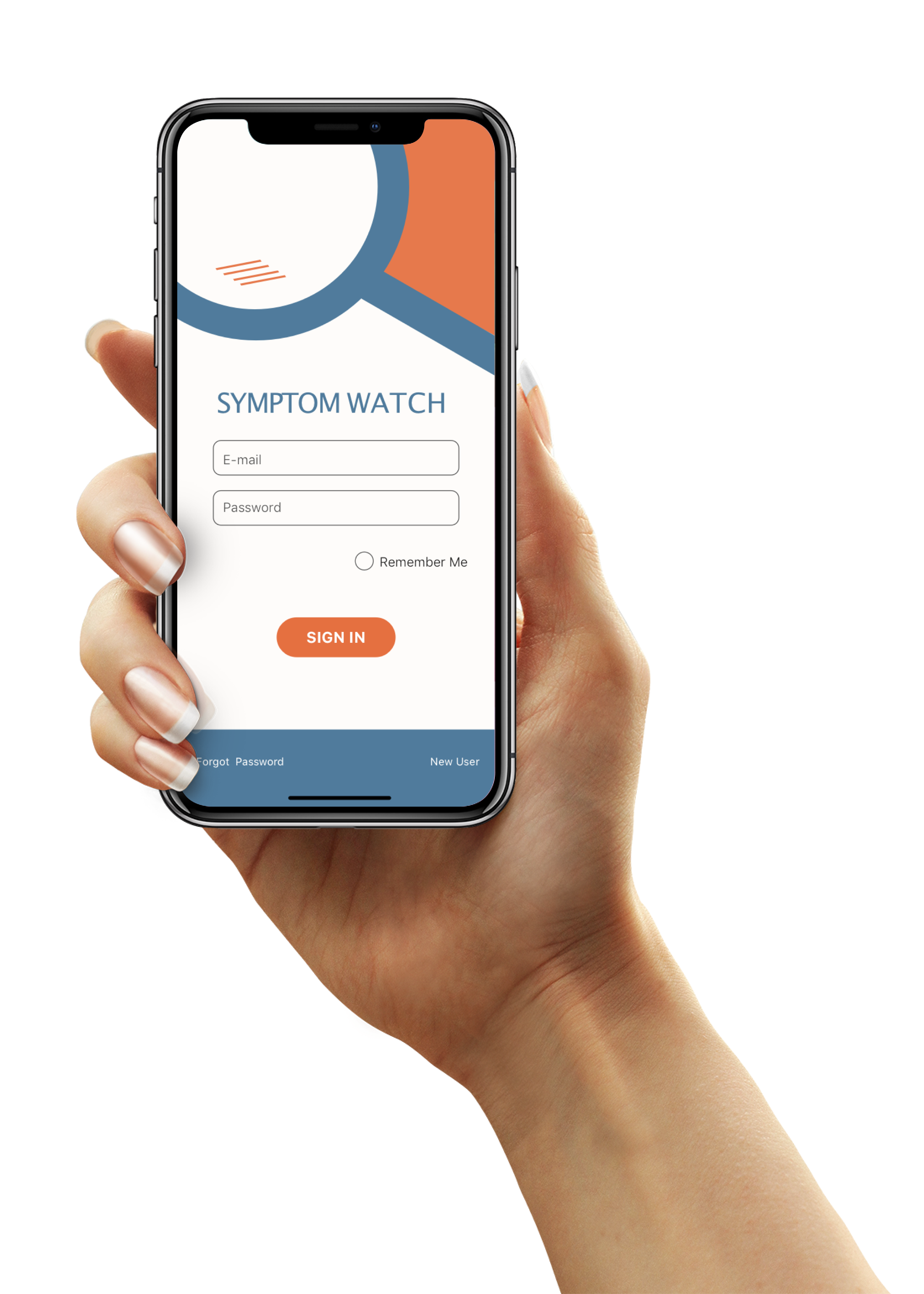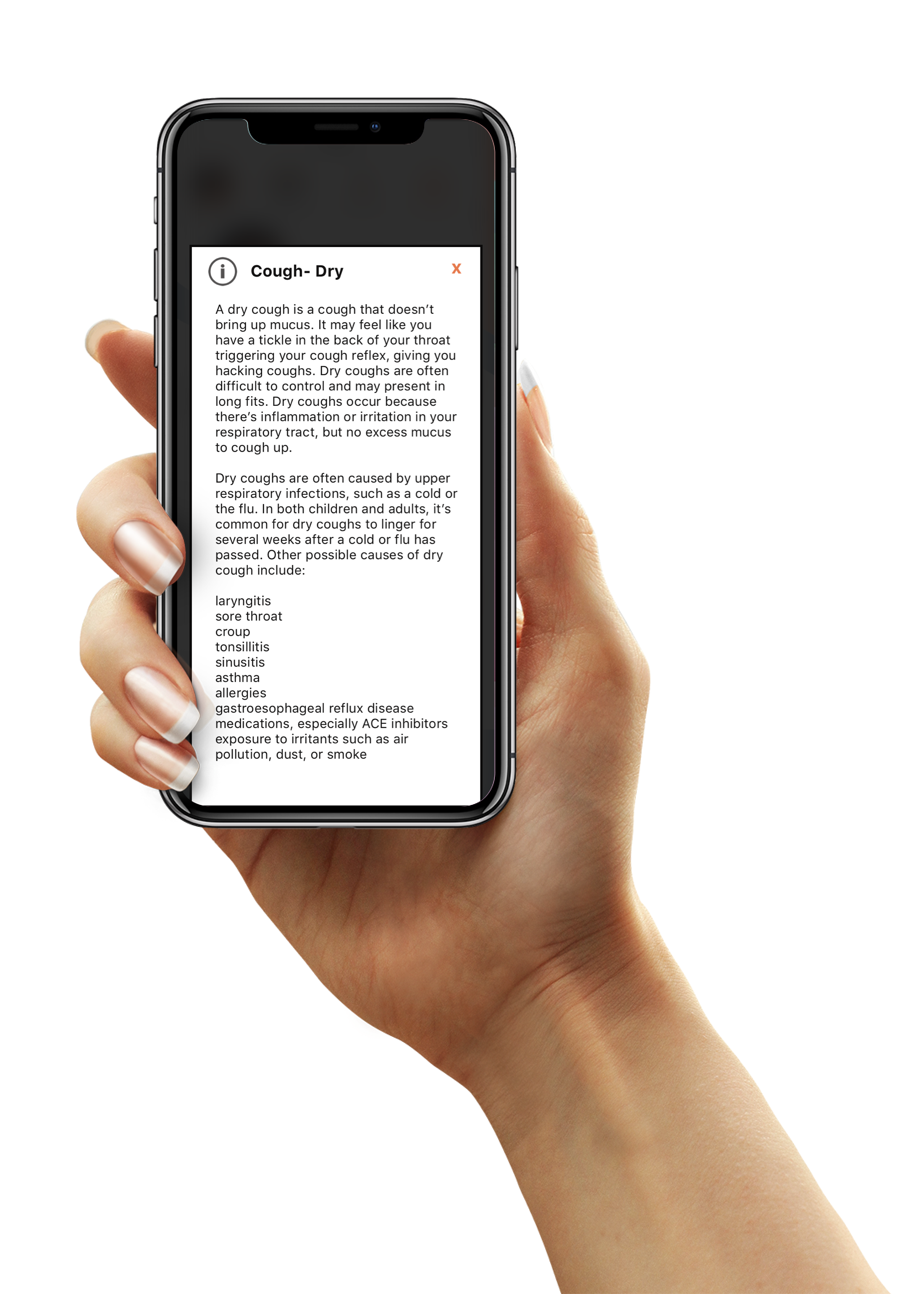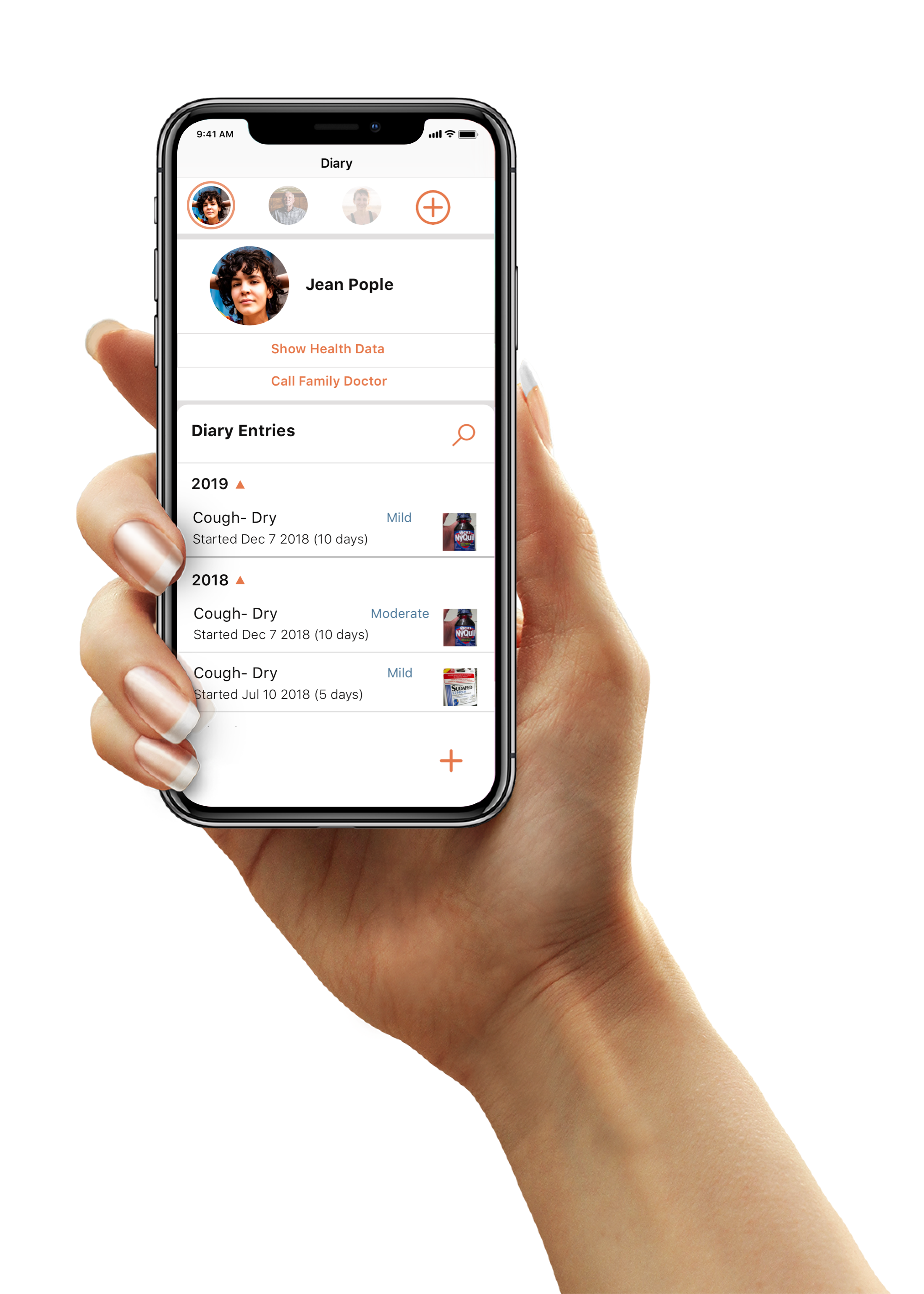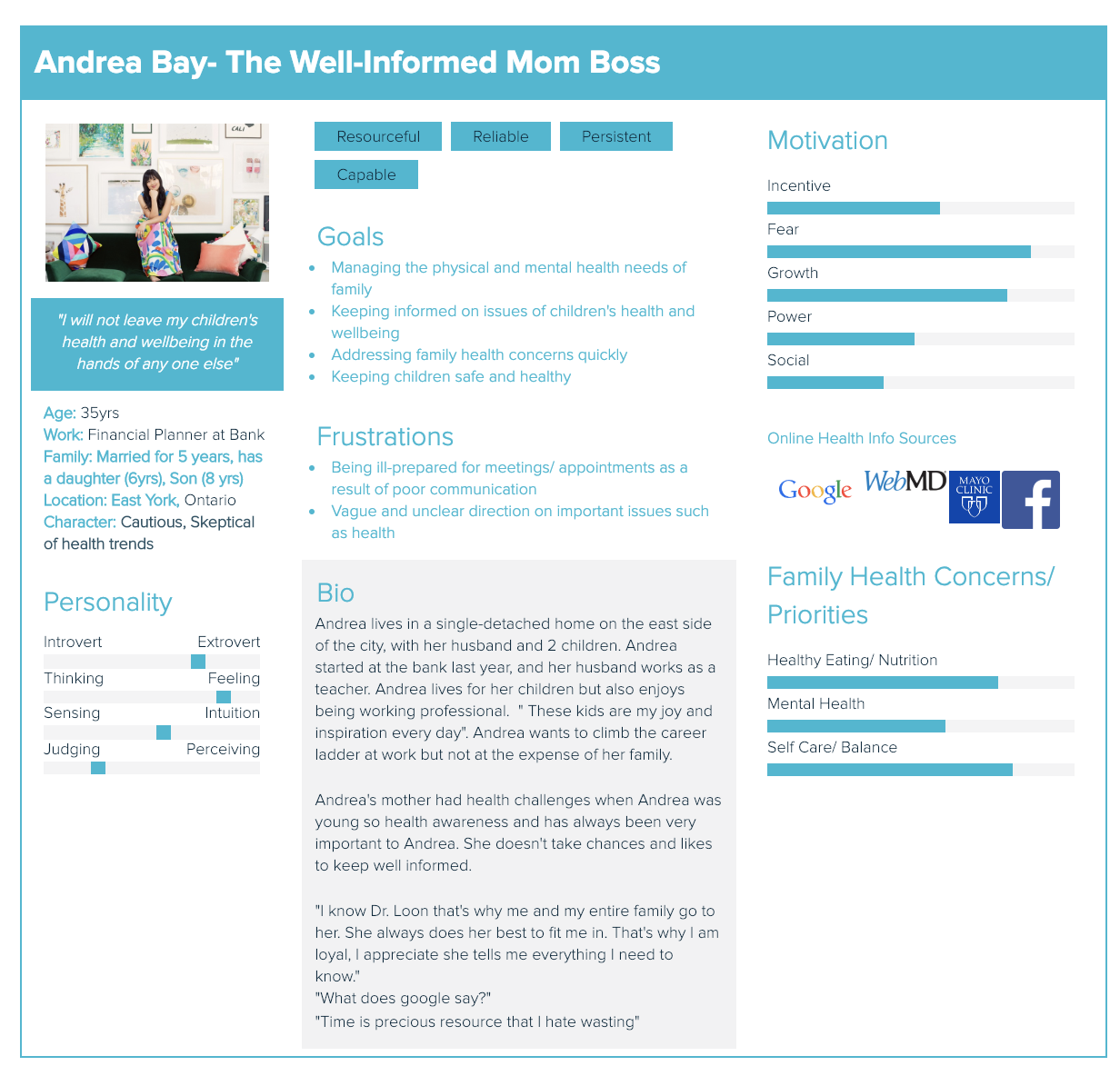SYMPTOM WATCH
SYMPTOM
WATCH
CONTENTS
The Problem
Hypothesis
Research
Persona
Task Flow
Ideation
User Testing
Final Screens
Symptom Watch is used by caregivers to track symptoms when family members are ill. Symptom Watch enables users to create a diary for each family member to track symptom type, severity, and duration. Users can also add notes, photos/ videos to record symptoms by date so they can be recalled during appointments.
Symptom Watch is used by caregivers to track symptoms when family members are ill. Symptom Watch enables users to create a diary for each family member to track symptom type, severity, and duration. Users can also add notes, photos/ videos to record symptoms by date so they can be recalled during appointments.
- Tools: Sketch, Marvel App, Invision
- Date: Feb 2019
- Role: Designer
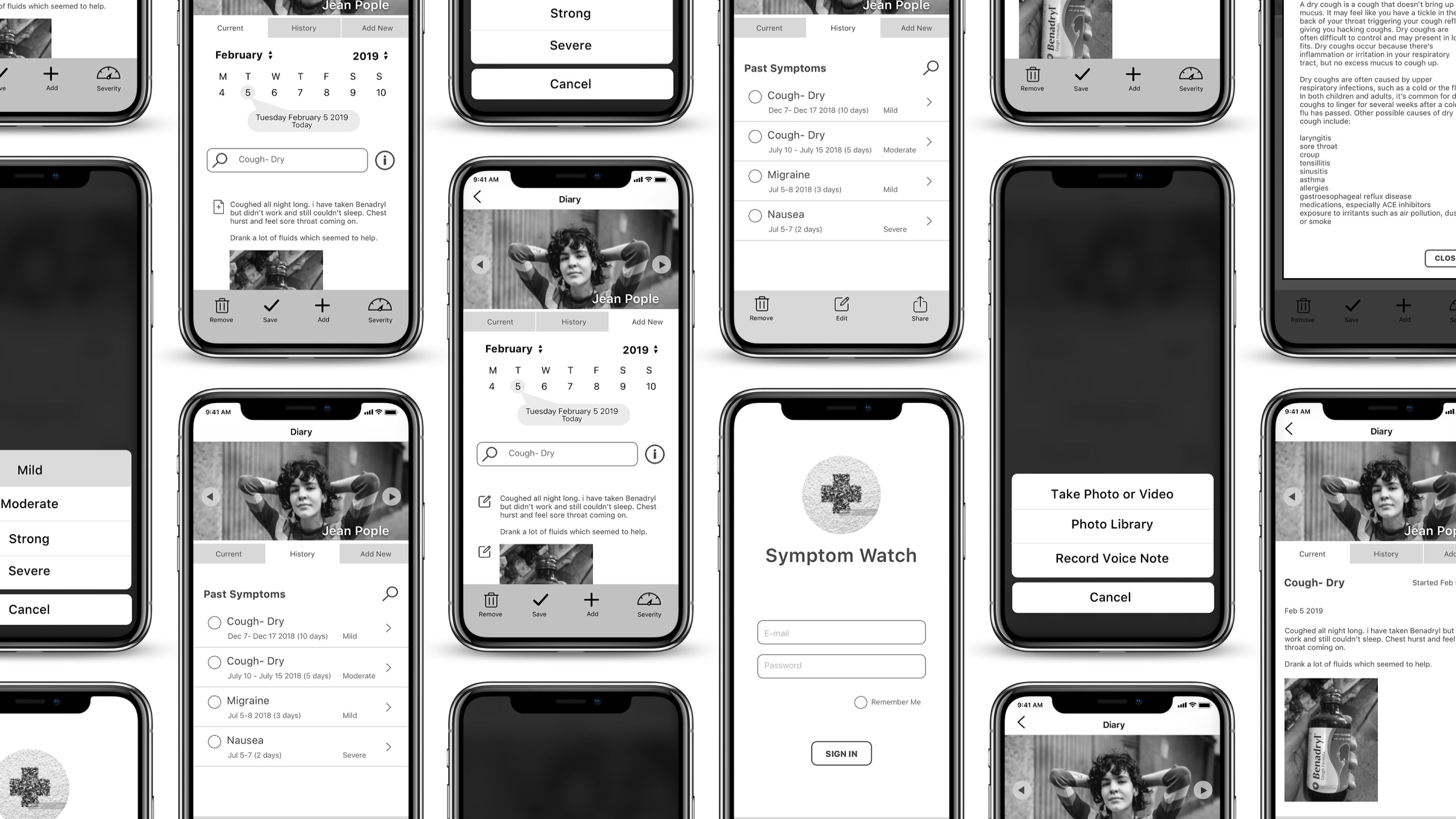
THE PROBLEM
When it comes to care for their children, how might we provide support to parents navigating through the health care system efficiently?
As they navigate a fragmented and disjointed system, parent’s expectations on their children’s physicians are increasing. Parents want physicians who are caring, resourceful, and can engage with them and the lives of their children. They expect strong diagnostic skills, and for doctors to provide a referral when needed. Physicians are partners, working with families offering guidance, information and the best care for their children.
In addition to the high emotional investment, a parent/ caregiver is also the link between the patient, providing comfort and support, and the doctor, providing information and facilitating follow up care. A more cohesive and accessible system will enable caregivers to better coordinate the several moving parts required to meet the medical needs of children.
As they navigate a fragmented and disjointed system, parent’s expectations on their children’s physicians are increasing. Parents want physicians who are caring, resourceful, and can engage with them and the lives of their children. They expect strong diagnostic skills, and for doctors to provide a referral when needed. Physicians are partners, working with families offering guidance, information and the best care for their children.
In addition to the high emotional investment, a parent/ caregiver is also the link between the patient, providing comfort and support, and the doctor, providing information and facilitating follow up care. A more cohesive and accessible system will enable caregivers to better coordinate the several moving parts required to meet the medical needs of children.
When it comes to care for their children, how might we help parents navigate through the health care system efficiently?
HYPOTHESIS
The assumptions are that parents:
- Use more information for better preparation
- Take ownership over their children's healthcare needs
- Experience a shortage of Pediatricians
- Want to spend less time
The assumptions are validated if parents:
- Are unsure of what to expect at appointments
- Have limited appointment availability
- Prepare children for their appointments
- Research about child's heath
- Wait long at the doctor
RESEARCH
LITERATURE REVIEW
Research included reviews of several scientific journals, media articles which revealed the following:
1. Expectations are increasing:
- Want physicians who are caring, resourceful, and can engage with them and the lives of their children.
- Expect strong diagnostic skills, and for doctors to provide a referral when needed.
- Physicians are partners, working with families offering guidance, information and the best care for their children
2. Wait times lower than other specialists
3. There are more children with chronic disease/ who require complex care
INTERVIEWS
Participant Criteria:
- Located in GTA
- Parent with kids under age of 16 years old
- Eligible for Provincial Health Insurance
- English speaking
- Attended a doctors appointments with at least one of their children in the last 12 months.
Findings:
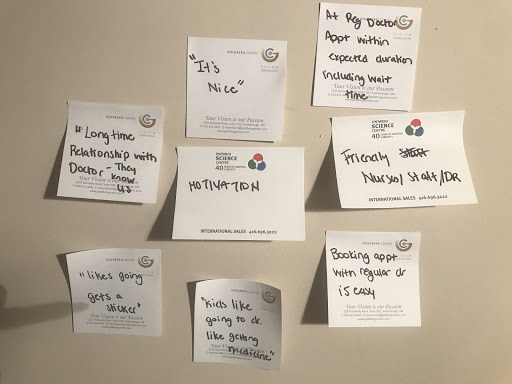
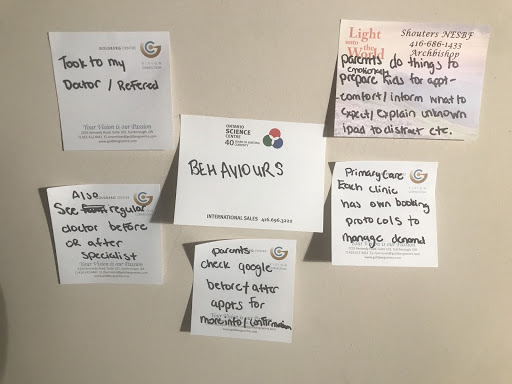
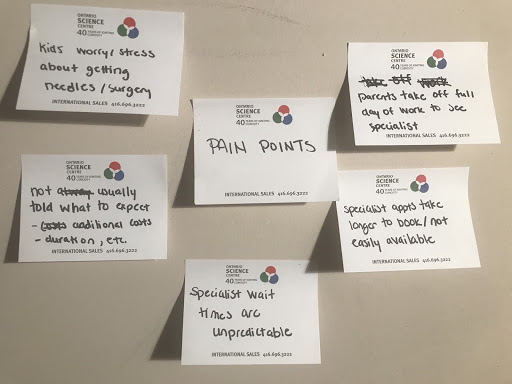
Parents trust and depend on their primary care provider for guidance but take responsibility as the caretakers of their children’s health, seeking information, and partnering with physicians to minimize discomfort.
Parents trust primary care providers for guidance but are the caretakers of their children’s health by seeking information, and partnering with physicians to minimize discomfort
TASK FLOW
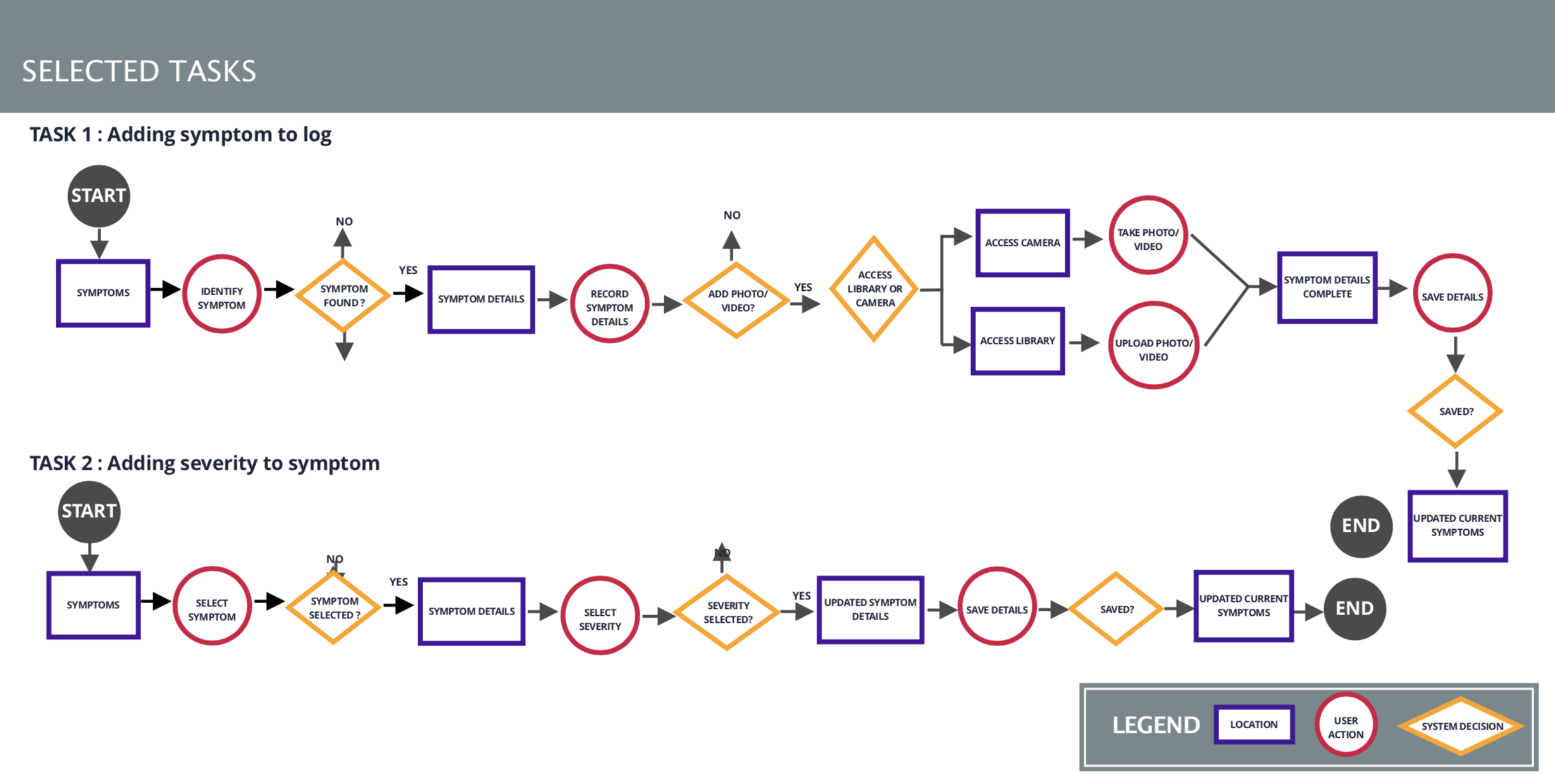
IDEATION
USER TESTING
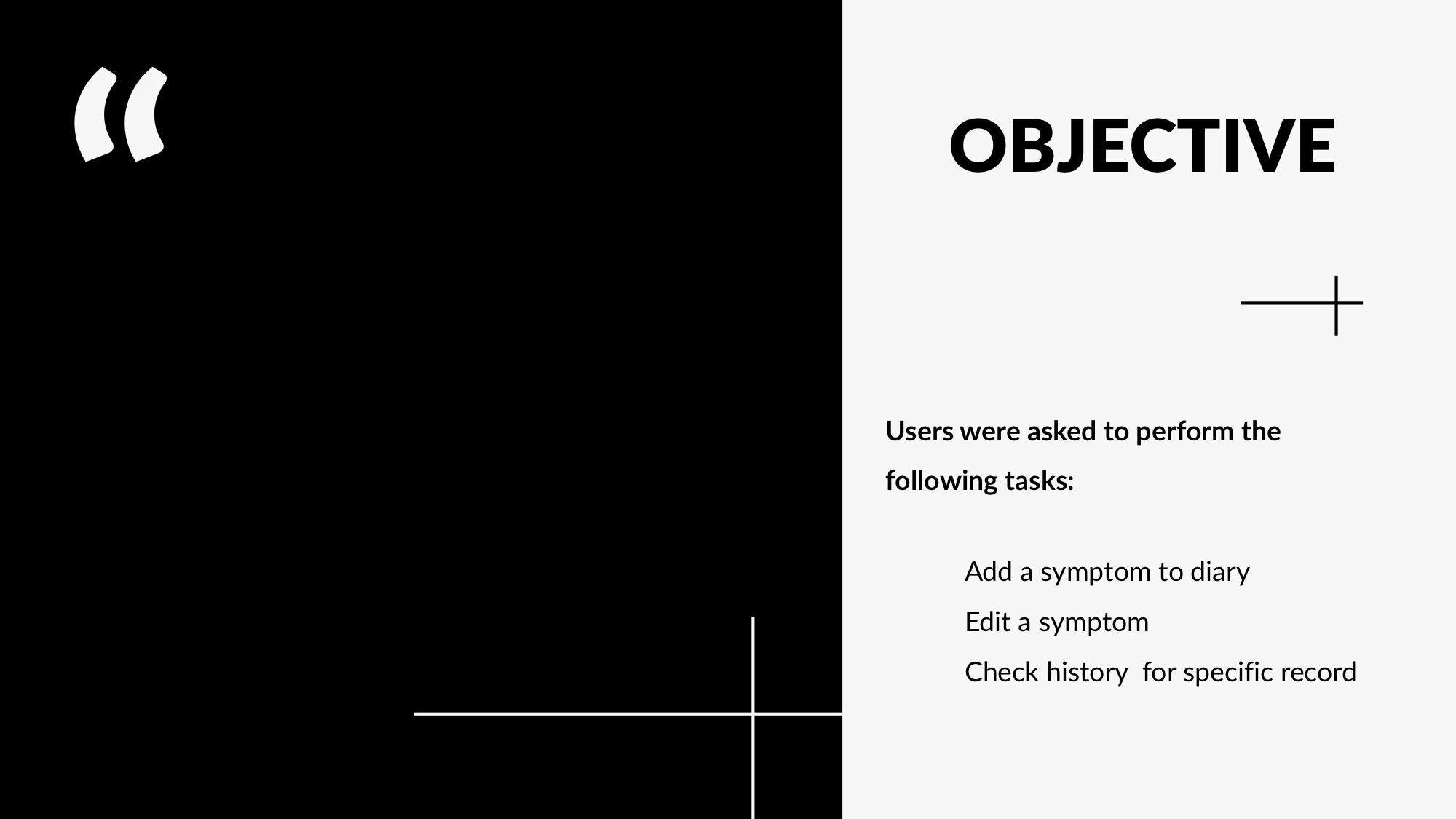
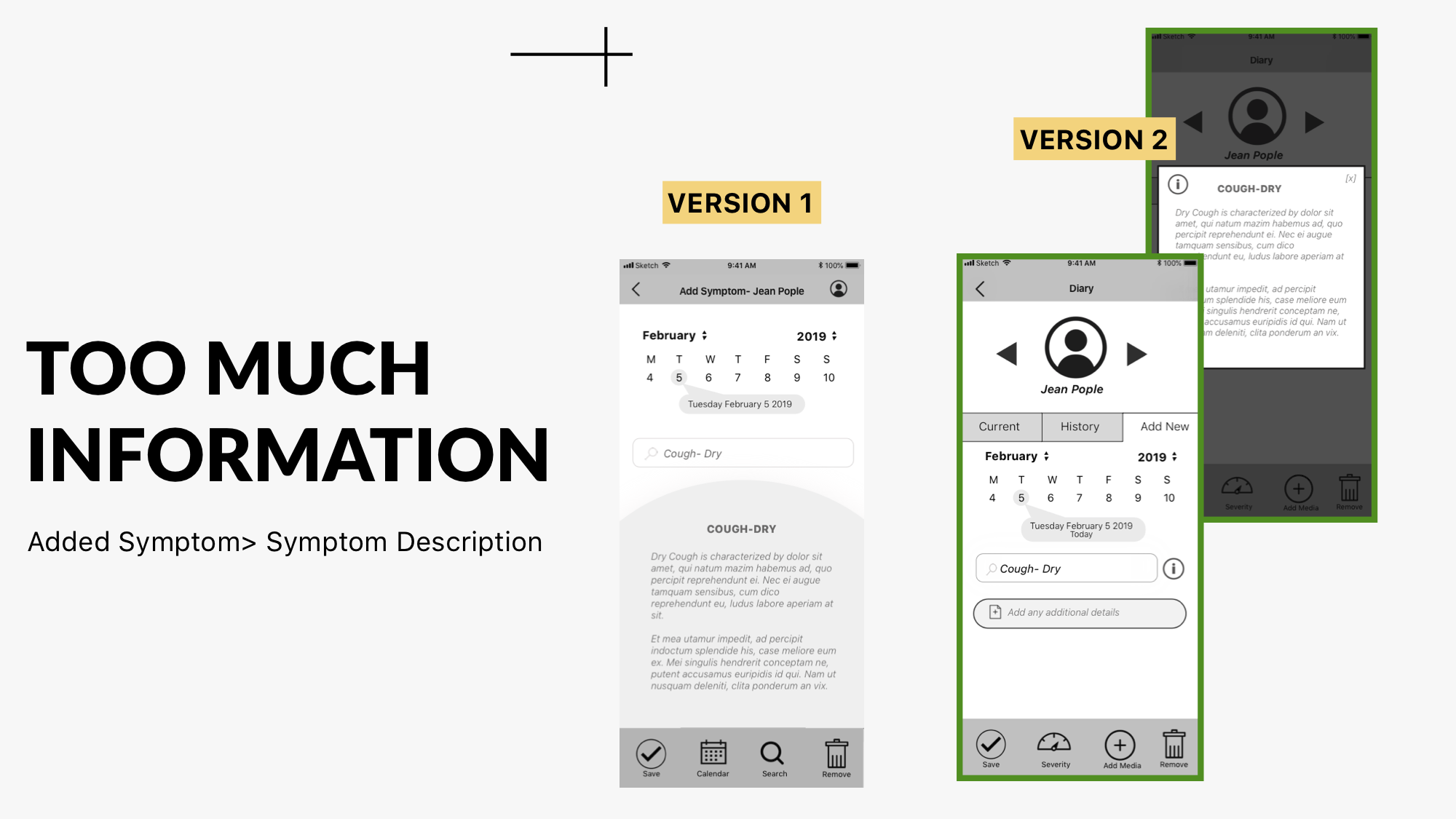
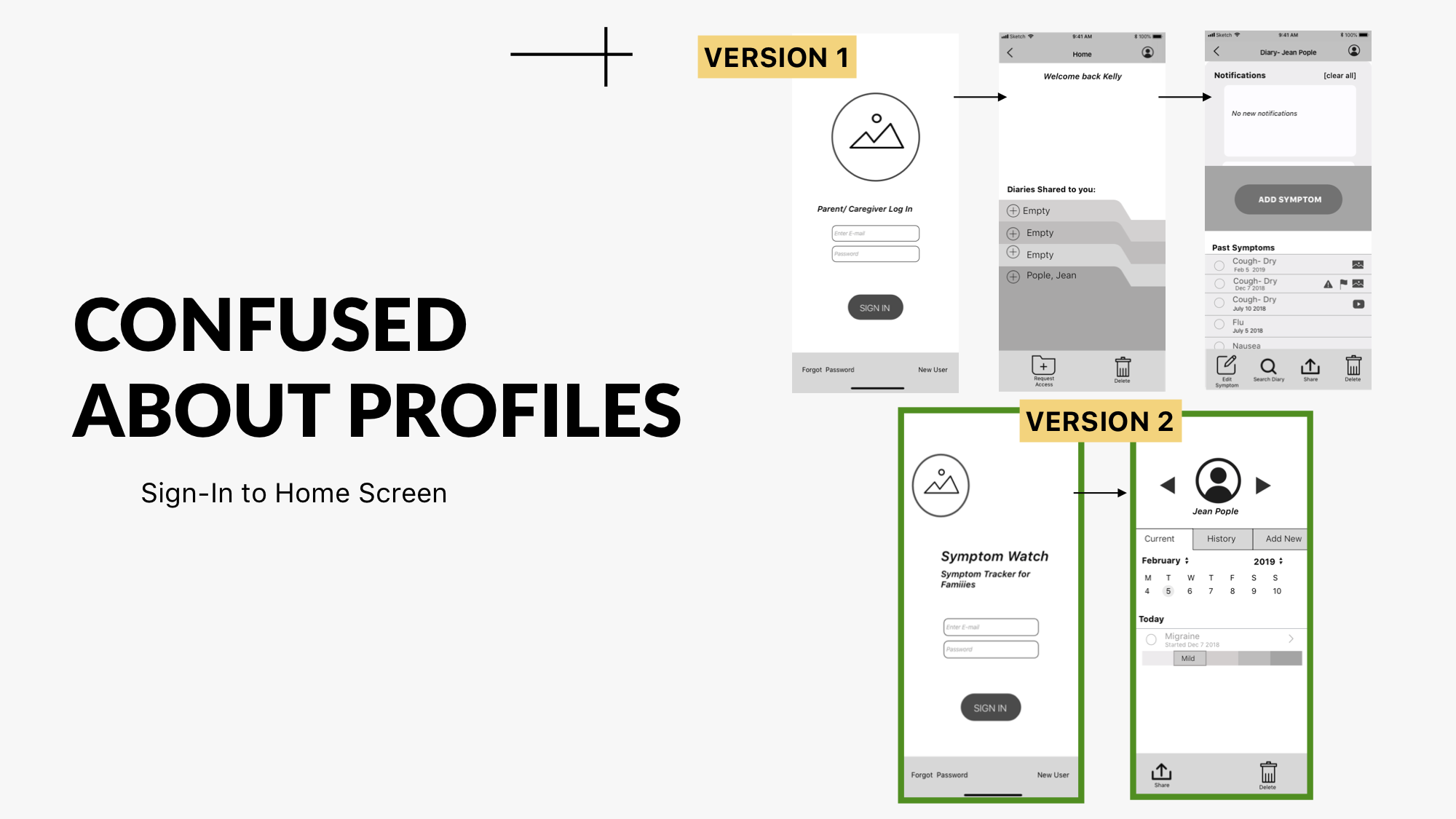
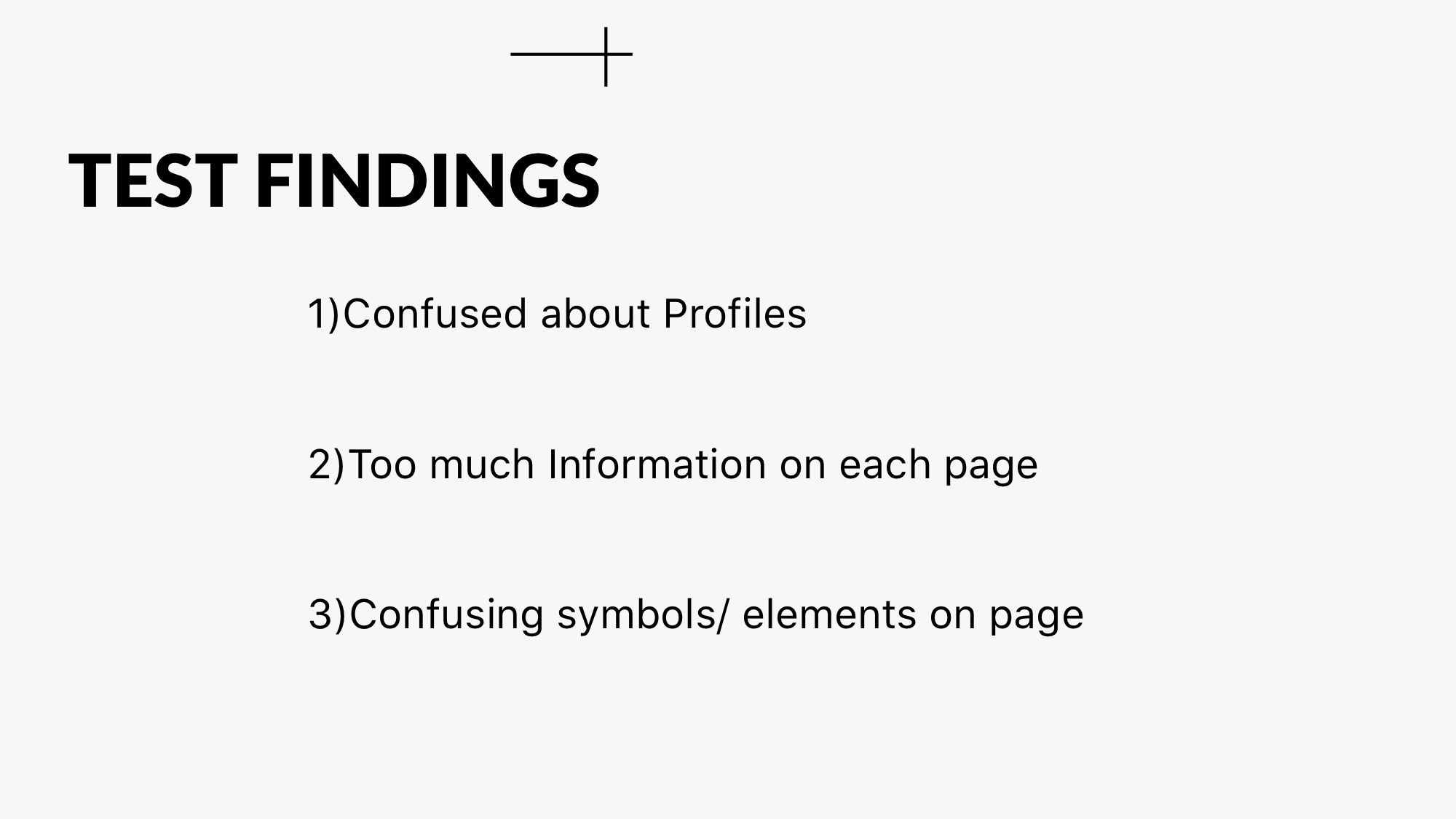
FINAL SCREENS

